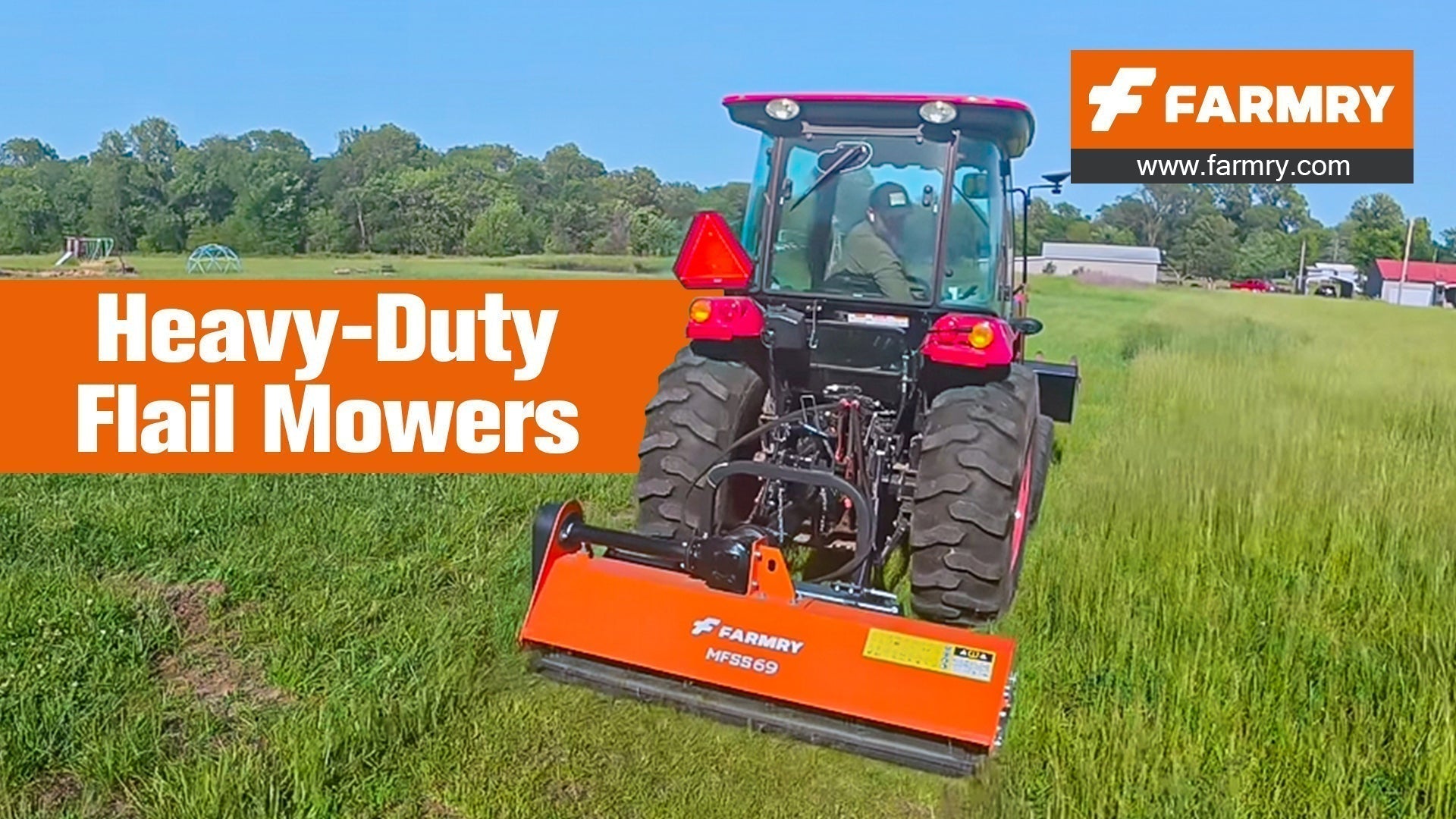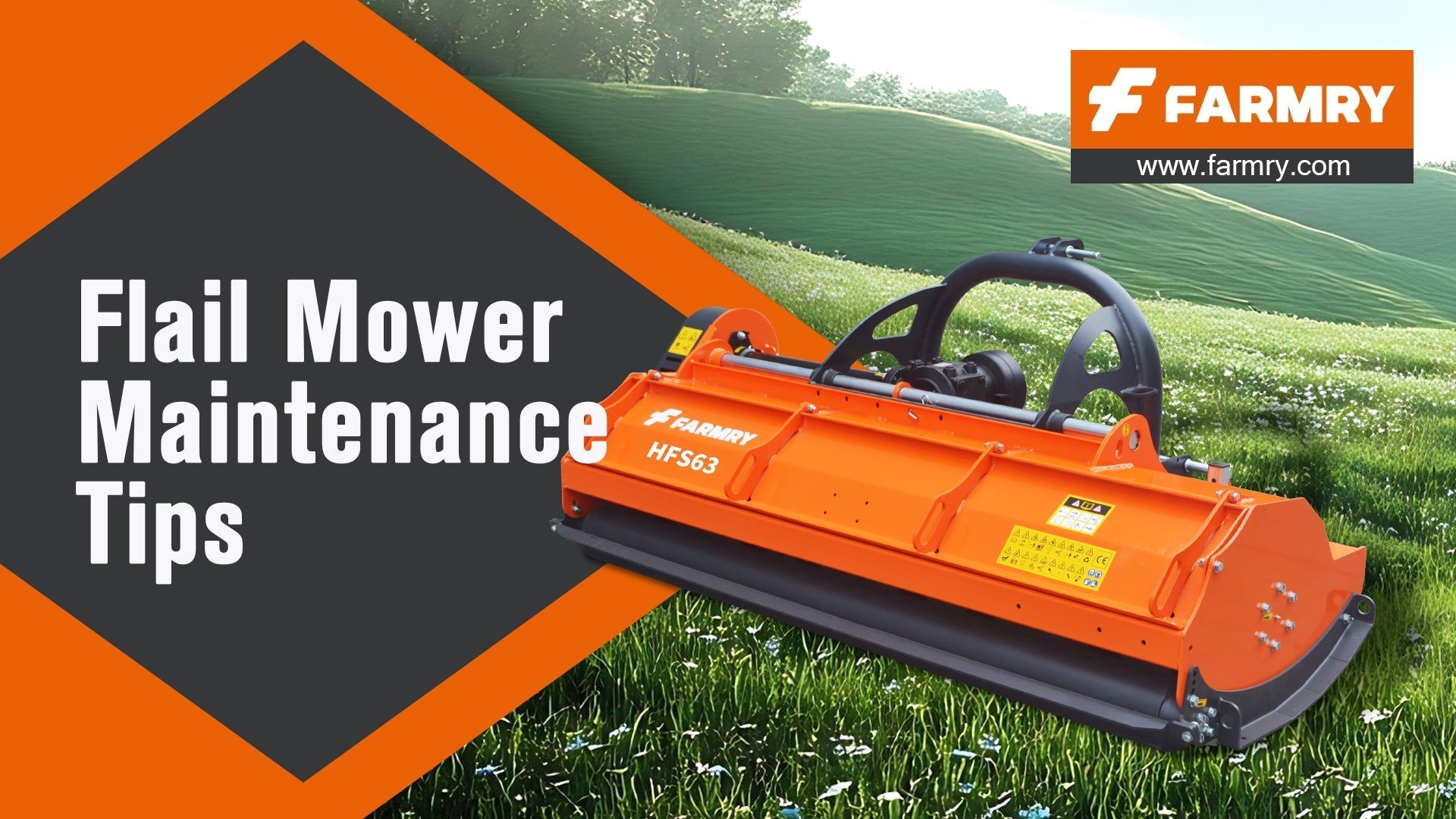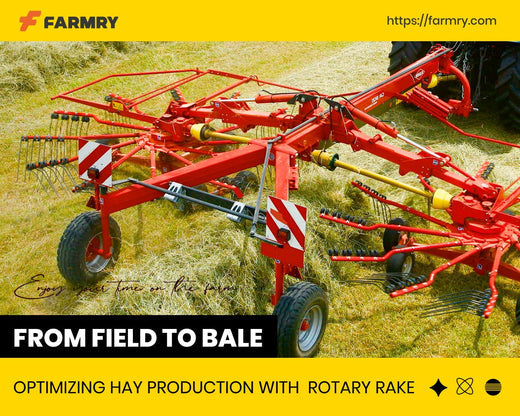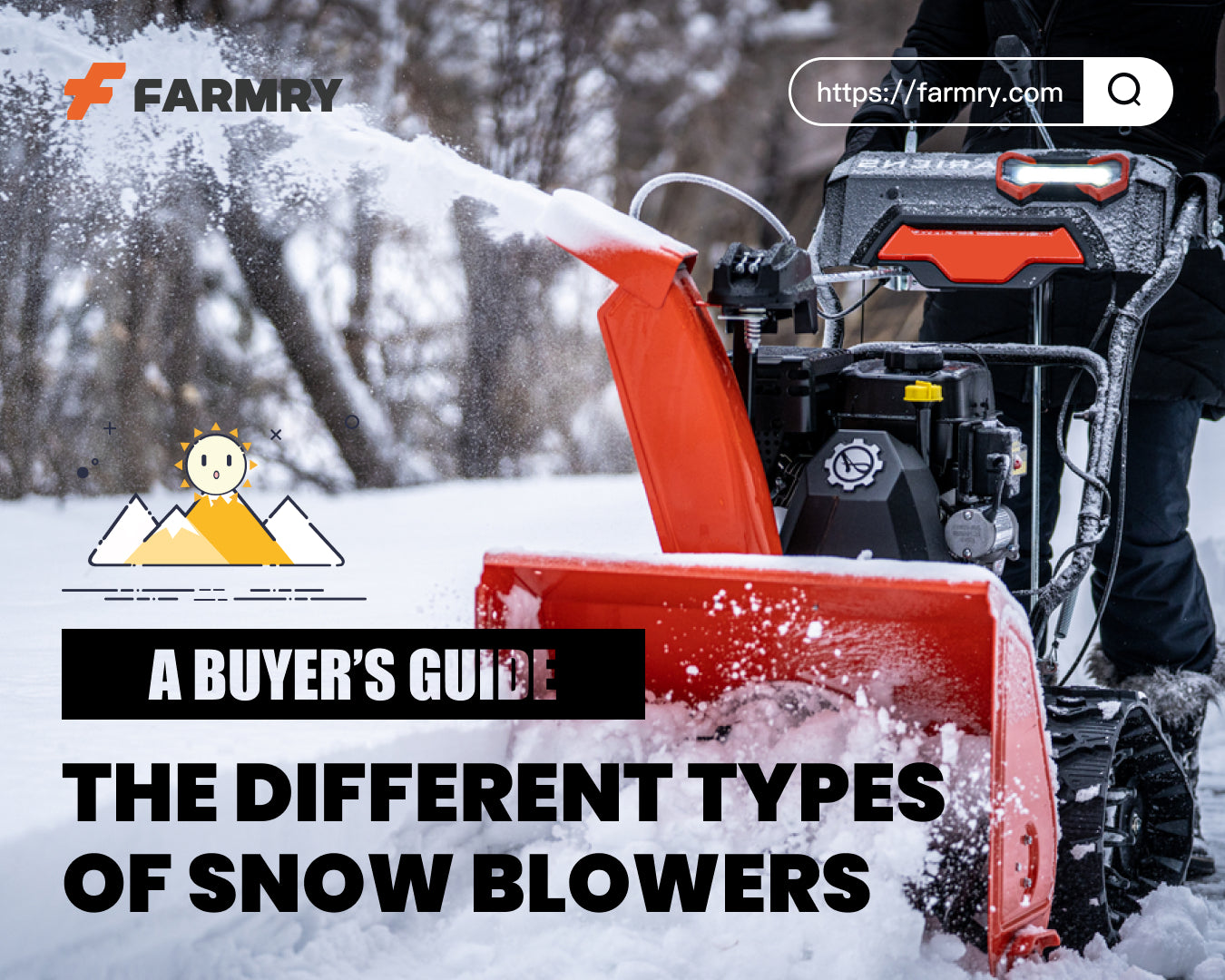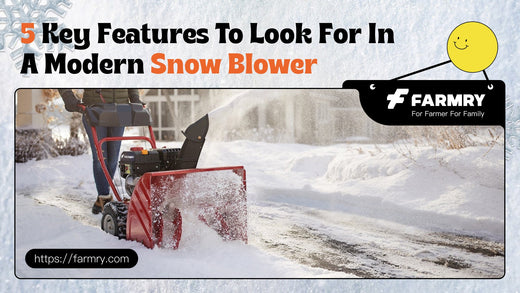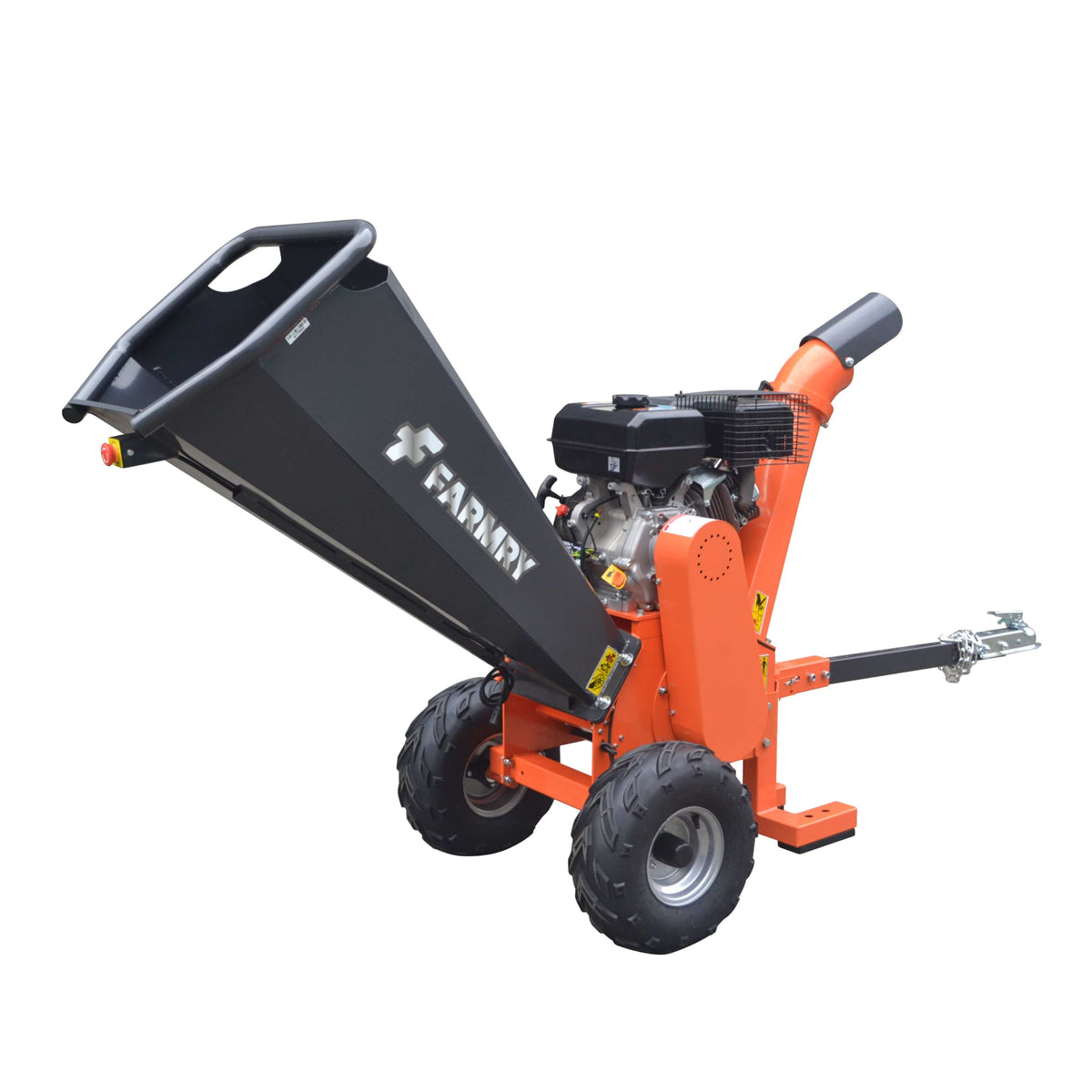Flail Mowers for Ditch and Bank Maintenance
 Flail Mower for Digger: A Practical Guide to Ditch and Bank Maintenance
Flail Mower for Digger: A Practical Guide to Ditch and Bank Maintenance
Maintaining ditches and slopes is no easy task—especially when safety, precision, and time-efficiency are top priorities. That’s where the flail mower for digger comes in: a powerful, versatile solution ideal for municipal crews managing roadside vegetation, drainage channels, and steep banks.
In this guide, we’ll walk through how flail mowers work, what makes them suitable for slope and ditch work, and how to choose the right model for your machine—even if you’re not a seasoned operator.
Why Flail Mowers Are Ideal for Slopes and Ditches
Traditional mowers can struggle—or even become dangerous—on uneven terrain. Flail mowers are specifically engineered to offer a safer, cleaner cut. By using rotating blades or hammers mounted on a drum, they shred brush, weeds, and even small trees into fine mulch with reduced debris throw.
When mounted on mini excavators, these compact attachments offer unmatched flexibility. Operators can mow difficult areas while keeping the base of the excavator on stable ground—perfect for municipal maintenance tasks like:
-
Mowing grass on embankments
-
Clearing road edges and tight spaces
-
Managing overgrowth in drainage ditches and ponds
What Is a Flail Mower for a Digger?
A flail mower for digger is a hydraulic-powered attachment that connects to an excavator arm, converting it into a powerful slope mower. Often referred to as an excavator flail, this tool is designed to handle areas a tractor mower simply can’t reach.
Instead of relying on a PTO shaft, these mowers use the hydraulic motor of the excavator. That means they rely on two key performance specs:
-
Oil flow – how much hydraulic fluid your excavator can provide per minute
-
Cutting width – the swath the mower can cover in a single pass
Matching your mower’s oil flow requirements to your machine is essential for proper performance and longevity.
Key Features to Look For
Here’s what municipal buyers should focus on when selecting a flail mower:
✅ 1. Hydraulic Motor Compatibility
Check your excavator’s flow rate and pressure specs to ensure it matches the flail mower’s requirements. Farmry’s models clearly list oil flow compatibility for ease of selection.
✅ 2. Floating System
A floating system allows the mower to follow the ground contour naturally, which is critical when working on slopes or irregular terrain.
✅ 3. Blade or Hammer Type
-
Y-shaped blades are great for mowing grass and lighter vegetation.
-
Hammer flails are better for dense brush and small trees.
Choose based on the terrain and foliage you’re managing.
✅ 4. Cutting Width
Wider isn’t always better. In tight spaces, a smaller cutting width gives you better control and access. Farmry offers multiple widths to suit your area size and machine class.
✅ 5. Compact, Engineered Design
Farmry flail mowers are engineered with municipal needs in mind—built with compact profiles, heavy-duty bearings, and easy-to-maintain housings. This allows crews to get the job done with less downtime.
Best Applications for Municipal Crews
Whether you’re maintaining miles of roadside or clearing stormwater channels, these mowers are ideal for:
-
Ditch banks and slopes
-
Pond edges and culverts
-
Urban spaces where debris throw must be minimized
-
Mini excavators working in restricted areas
With the right mower, your team can safely clear brush, mulch debris, and improve public space aesthetics—without relying on larger or riskier equipment.
FAQs
1. Can I use a flail mower with mini excavators?
Yes. Many flail mowers are compatible with mini excavators, making them ideal for urban maintenance or hard-to-reach banks.
2. How does oil flow affect performance?
Hydraulic oil flow directly powers the flail mower. Too little flow, and the mower underperforms. Too much can overheat or damage the hydraulic motor. Always match flow requirements with your digger.
3. What’s the difference between blades and hammers?
Blades are for grass; hammers are tougher and can handle brush or small trees.
4. Why choose a compact attachment over a large one?
A compact mower is easier to maneuver and reduces risk when operating near roads, utilities, or tight spaces.
5. What is a floating system and why does it matter?
The floating system lets the mower head "float" over terrain, preventing gouging and promoting even cutting on slopes or uneven ground.
For municipal crews, an excavator flail mower isn’t just a tool—it’s a problem-solver. With the right setup, you can maintain ditches and banks more efficiently, safely, and with greater control.
Explore Farmry’s range of flail mowers and see how the right attachment can transform your everyday maintenance work.

